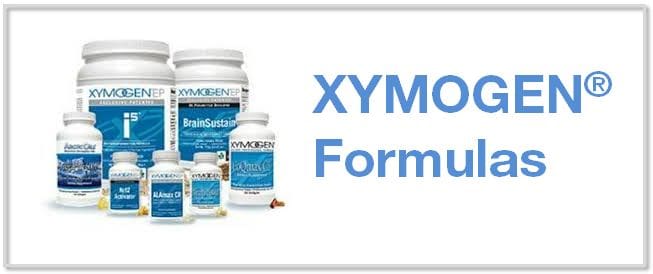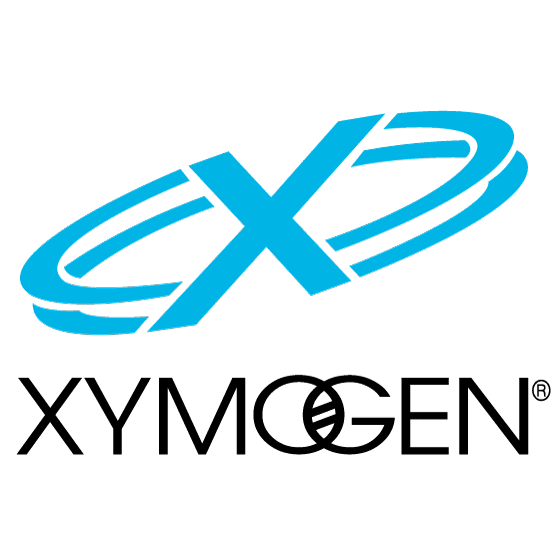Does DNA methylation affect plasticity?
Methylation plays a role in a variety of bodily functions, including plasticity. The regulation of DNA methylation is essential for cells to “read” epigenetic patterns. Methylation occurs randomly in regions known as the metastable epialleles. These epigenetic patterns are then passed down to offspring during fetal development, and they will continue to be preserved through multiple generations. How genomic imprinting impacts DNA methylation and plasticity has been demonstrated in a variety of research studies.
Genomic imprinting is tremendously affected by environmental factors. By way of instance, exposure to the fungicide vinclozolin and the pesticide methoxychlor can trigger alterations in epigenetic patterns which can carry over to future generations, regardless of maintained exposure. Environmental factors may also prevent DNA methylation activity, which may cause various health issues.
Table of Contents
Genomic Imprinting and DNA Methylation
Nutrient deficiencies required for SAMe biosynthesis and/or DNA methylation activity may lead to permanent nutritional deficits in CpG methylation. Animal research studies have demonstrated that supplements, such as folic acid, vitamin B12, choline, and betaine, during pregnancy can have a considerable, restorative impact on offspring DNA methylation activity and SAMe biosynthesis.
As mentioned above, the preservation of DNA methylation in proliferative cells and/or tissues may also be tremendously affected by nutritional deficiencies in methyl donor status and/or DNA methylation activity. As a matter of fact, DNA de-methylation, which generally develops between the ages of 34 to 68 years old, is considered to be part of the normal aging process. Human research studies have demonstrated that non-age-related alterations in DNA methylation may occur outside crucial fetal developmental stages.
In a research study published in the Lancet, researchers determined that hyperhomocysteinemia, between 16 and 100 mol/L plasma or serum, was considerably associated with DNA hypomethylation in humans. The research study participants were between the ages of 39 to 68 years old. Researchers believed that this occurred due to an increase in S-adenosyl homocysteine, or SAH), a powerful inhibitor of SAMe- dependent methyltransferases, including DNMTs. Induced folate deficiencies in the research study participants further worsened hyperhomocysteinemia, and folate treatment decreased plasma total homocysteine and DNA hypomethylation.
Animal research studies also demonstrated that DNA methylation may also be tremendously affected outside the critical fetal developmental stages. Dietary and lifestyle modifications may help restore methylation status. By way of instance, methionine supplements in adult rodent offspring have been demonstrated to reverse DNA methylation changes in the hippocampal glucocorticoid receptor as well as in stress responses, caused by negative maternal behaviors in early life. Moreover, b
Although the evidence is still limited, and more research studies are required to determine outcome measures, both animal and human research studies demonstrated that alterations in DNA methylation can be caused by nutrient availability, including folate, choline, vitamin B6, and vitamin B12. The outcome measures of many of these research studies suggest that multiple factors, such as food-based modulators on genomic imprinting, lifestyle, and environmental exposures, shape the overall impact on DNA methylation.

DNA methylation has been demonstrated to tremendously affect genomic imprinting associated with nutrient deficiencies and environmental factors. Stress responses may also alter DNA methylation epigenetic patterns which are correlated with gene expression differences. According to the research studies mentioned in the following article, nutrient deficiencies and environmental factors may cause DNA methylation health issues throughout multiple generations. Understanding how DNA methylation affects plasticity is essential for individuals to continue overall health and wellness for future generations.
Dr. Alex Jimenez D.C., C.C.S.T. Insight
Smoothies and Juices for Methylation Support

While many healthcare professionals can recommend nutritional guidelines and lifestyle modifications, there are several alternative treatment options you can try for yourself at home. As described above, however, supplementation for methylation support should be correctly determined by a healthcare professional. Smoothies and juices are a fast and easy way to include all the necessary nutrients you need for methylation support in a single serving. The smoothies and juices below are part of the Methylation Diet Food Plan.
Sea Green Smoothie
Servings: 1
Cook time: 5-10 minutes
• 1/2 cup cantaloupe, cubed
• 1/2 banana
• 1 handful of kale or spinach
• 1 handful of Swiss chard
• 1/4 avocado
• 2 teaspoons spirulina powder
• 1
• 3 or more ice cubes
Blend all ingredients in a high-speed blender until completely smooth and enjoy!
Berry Bliss Smoothie
Servings: 1
Cook time: 5-10 minutes
• 1/2 cup blueberries (fresh or frozen, preferably wild)
• 1 medium carrot, roughly chopped
• 1 tablespoon ground flaxseed or chia seed
• 1 tablespoons almonds
• Water (to desired consistency)
• Ice cubes (optional, may omit if using frozen blueberries)
Blend all ingredients in a high-speed blender until smooth and creamy. Best served immediately!
Sweet and Spicy Juice
Servings: 1
Cook time: 5-10 minutes
• 1 cup honeydew melons
• 3 cups spinach, rinsed
• 3 cups Swiss chard, rinsed
• 1 bunch cilantro (leaves and stems), rinsed
• 1-inch knob of ginger, rinsed, peeled and chopped
• 2-3 knobs whole turmeric root (optional), rinsed, peeled and chopped
Juice all ingredients in a high-quality juicer. Best served immediately!
Ginger Greens Juice
Servings: 1
Cook time: 5-10 minutes
• 1 cup pineapple cubes
• 1 apple, sliced
• 1-inch knob of ginger, rinsed, peeled and chopped
• 3 cups kale, rinsed and roughly chopped or ripped
• 5 cups Swiss chard, rinsed and roughly chopped or ripped
Juice all ingredients in a high-quality juicer. Best served immediately!
Zesty Beet Juice
Servings: 1
Cook time: 5-10 minutes
• 1 grapefruit, peeled and sliced
• 1 apple, washed and sliced
• 1 whole beet, and leaves if you have them, washed and sliced
• 1-inch knob of ginger, rinsed, peeled and chopped
Juice all ingredients in a high-quality juicer. Best served immediately!
Protein Power Smoothie
Serving: 1
Cook time: 5 minutes
• 1 scoop protein powder
• 1 tablespoon ground flaxseed
• 1/2 banana
• 1 kiwi, peeled
• 1/2 teaspoon cinnamon
• Pinch of cardamom
• Non-dairy milk or water, enough to achieve desired consistency
Blend all ingredients in a high-powered blender until completely smooth. Best served immediately!
ProLon® Fasting Mimicking Diet
alanced methylation support can be achieved through proper nutrition. The ProLon® fasting mimicking diet offers a 5-day meal program which has been individually packed and labeled to serve the foods you need for the FMD in precise quantities and combinations. The meal program is made up of ready-to-eat or easy-to-prepare, plant-based foods, including bars, soups, snacks, supplements, a drink concentrate, and teas. The products are scientifically formulated and great tasting. Before starting the ProLon® fasting mimicking diet, 5-day meal program, please make sure to talk to a healthcare professional to find out if the FMD is right for you. The ProLon® fasting mimicking diet can help promote methylation support, among a variety of other
Many doctors and functional medicine practitioners may recommend higher doses of methyl donors in several patients, however, further research studies are needed to determine the proper amount of methylation supplementation. The scope of our information is limited to chiropractic, musculoskeletal and nervous health issues as well as functional medicine articles, topics, and discussions. To further discuss the subject matter above, please feel free to ask Dr. Alex Jimenez or contact us at 915-850-0900 .
Curated by Dr. Alex Jimenez
Additional Topic Discussion: Acute Back Pain
Back pain is one of the most prevalent causes of disability and missed days at work worldwide. Back pain attributes to the second most common reason for doctor office visits, outnumbered only by upper-respiratory infections. Approximately 80 percent of the population will experience back pain at least once throughout their life. Your spine is a complex structure made up of bones, joints, ligaments, and muscles, among other soft tissues. Injuries and/or aggravated conditions, such as herniated discs, can eventually lead to symptoms of back pain. Sports injuries or automobile accident injuries are often the most frequent cause of back pain, however, sometimes the simplest of movements can have painful results. Fortunately, alternative treatment options, such as chiropractic care, can help ease back pain through the use of spinal adjustments and manual manipulations, ultimately improving pain relief.
Formulas for Methylation Support
XYMOGEN’s Exclusive Professional Formulas are available through select licensed health care professionals. The internet sale and discounting of XYMOGEN formulas are strictly prohibited.
Proudly, Dr. Alexander Jimenez makes XYMOGEN formulas available only to patients under our care.
Please call our office in order for us to assign a doctor consultation for immediate access.
If you are a patient of Injury Medical & Chiropractic Clinic, you may inquire about XYMOGEN by calling 915-850-0900.
For your convenience and review of the XYMOGEN products please review the following link.*XYMOGEN-Catalog-Download
* All the above XYMOGEN policies remain strictly in force.
***
Post Disclaimer
Professional Scope of Practice *
The information herein on "DNA Methylation Plasticity" is not intended to replace a one-on-one relationship with a qualified health care professional or licensed physician and is not medical advice. We encourage you to make healthcare decisions based on your research and partnership with a qualified healthcare professional.
Blog Information & Scope Discussions
Our information scope is limited to Chiropractic, musculoskeletal, physical medicines, wellness, contributing etiological viscerosomatic disturbances within clinical presentations, associated somatovisceral reflex clinical dynamics, subluxation complexes, sensitive health issues, and/or functional medicine articles, topics, and discussions.
We provide and present clinical collaboration with specialists from various disciplines. Each specialist is governed by their professional scope of practice and their jurisdiction of licensure. We use functional health & wellness protocols to treat and support care for the injuries or disorders of the musculoskeletal system.
Our videos, posts, topics, subjects, and insights cover clinical matters, issues, and topics that relate to and directly or indirectly support our clinical scope of practice.*
Our office has reasonably attempted to provide supportive citations and has identified the relevant research study or studies supporting our posts. We provide copies of supporting research studies available to regulatory boards and the public upon request.
We understand that we cover matters that require an additional explanation of how it may assist in a particular care plan or treatment protocol; therefore, to further discuss the subject matter above, please feel free to ask Dr. Alex Jimenez, DC, or contact us at 915-850-0900.
We are here to help you and your family.
Blessings
Dr. Alex Jimenez DC, MSACP, RN*, CCST, IFMCP*, CIFM*, ATN*
email: coach@elpasofunctionalmedicine.com
Licensed as a Doctor of Chiropractic (DC) in Texas & New Mexico*
Texas DC License # TX5807, New Mexico DC License # NM-DC2182
Licensed as a Registered Nurse (RN*) in Florida
Florida License RN License # RN9617241 (Control No. 3558029)
License Compact Status: Multi-State License: Authorized to Practice in 40 States*
Presently Matriculated: ICHS: MSN* FNP (Family Nurse Practitioner Program)
Dr. Alex Jimenez DC, MSACP, RN* CIFM*, IFMCP*, ATN*, CCST
My Digital Business Card






